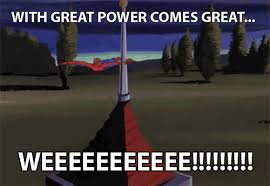Checks and balances: the constitutional framers' safeguard. We can prevent tyranny by dividing up the government between three different branches so that one branch never gains too much relative power. But, in a world where executive orders and overridden vetos actually operate, can the figment of checks and balances that existed in the minds of our nation's founders exist simultaneously? Donald Trump's campaign came riddled with promises too obscene to be kept and superlatives simple enough for uneducated white America to latch on to, but will he stay faithful to his words? Can he even if he wants to? Does he want to? At the finish line of one of the most divisive and bullish runs for president in history, Americans are bracing for the impact of a Trump presidency. However, he has quickly embraced prototypical political practice and decided that he may not get rid of Obamacare, Muslims, or even build his wall. His diehard followers are
certainly upset, but this is the perfect illustration of checks and balances beginning on the lowest level of government: the people.

To go against the will of the masses is bold and foolhardy, and that could not be more the case than when the President-elect loses the popular vote by one of the largest margins in history. During his campaign, it seemed that Trump could only hear his own voice when he spoke, but now that he's beginning to grasp the gravity of the situation upon which he's been thrust, he seems to be opening his ears wider than ever. Whether he likes it or not (something we don't know from all his stinging criticisms of how our government operates), his decisions and actions are limited by the other two branches of government.

In reading Hersman's book on how American foreign policy is actually made, we can
see that Trump's presidency is not the end-all-be-all of foreign policy decision-making. For instance, the President may be the Commander in Chief of the Armed Forces, but the power to declare war still rests with Congress. Additionally, the State Department remains the de facto actor in foreign affairs for the United States. While it is historically unspoken code to operate within assigned directives, United States' Ambassadors have strayed from staying the course of established American foreign policy in the past (cue the Blood Telegram). Theoretically, the Secretary of State should be the President's right-hand man when developing foreign policy and making foreign policy decisions, so with all so much power in the foreign policy realm, fear of Trump's international endeavors is not unwarranted.

While much of the foreign policy decision-making machine is within the executive branch, the legislature still gets to exercise its "check" power in its required approval of most of the executive branch's officers. Over 1,000 of the jobs that Trump must fill for his presidency require Senate confirmation, so although he chooses his cabinet officials and other executive officers, the Senate's approval stands to limit those options. Another monkey wrench in the process is that the Republican party controls the Senate now, so Trump's picks will likely get some leeway when undergoing their confirmations.

So. Wall? Almost certainly no. Some immigration task forces and executive orders? Probably. Trump's new-found power comes with great responsibility (=>), but a lot of that responsibility also lies with those around him (appointed though as they may be) and in the other branches of government. We will feel the effects of this Trump presidency in far more ways than just changing foreign policy, but for now, we can only speculate. With new cabinet rumors and appointments rolling in every day, the fate of American foreign policy rests on the will of the American people, their elected representatives, and everyone's willingness to play the cards we've been dealt.

 In reading Hersman's book on how American foreign policy is actually made, we can
In reading Hersman's book on how American foreign policy is actually made, we can

No comments:
Post a Comment